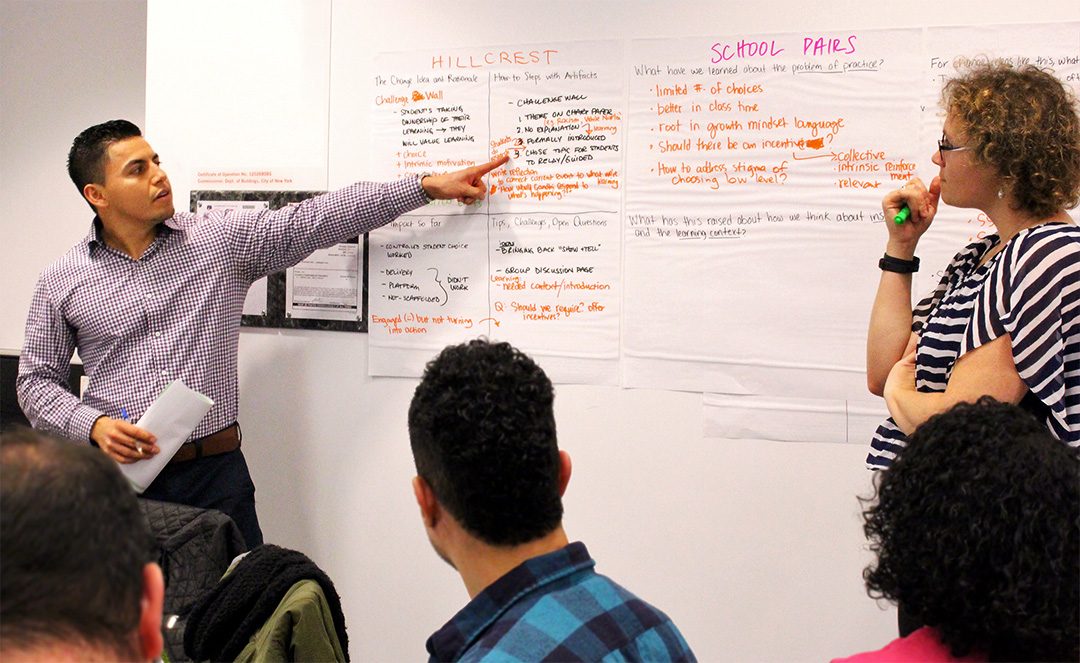“It brought a whole new layer to our work and really deepened our thinking. Instead of just saying to kids, ‘Well, work harder. Do more work,’ we actually had ways to think about this – ‘Is this work valuable to students? Do they feel like they belong in class? What’s their growth mindset?”
University researchers across the country are constantly churning out new insights about how students learn. But the journey from academic research to everyday classroom practice is fraught with challenges: teachers don’t have time to keep up with current trends and thought leaders, schools can’t afford subscriptions to journals, and academic articles are often written in impenetrable language. Moreover, even if teachers do find a research-based practice to try, figuring out how exactly to go about making changes is hard. Given these barriers, how can we help teachers take advantage of this valuable knowledge?
The Academic and Personal Behaviors Institute (APBI) offers one solution. An initiative led by the New York City Department of Education’s Office of Postsecondary Readiness with support from Eskolta, the APBI creates a networked learning community, bringing together educators from across the city, providing coaching on improvement, and allowing them to collectively examine cutting edge research. Since 2013, more than 250 teachers from 98 schools have participated in the APBI, where they have designed and then tested a wide range of instructional strategies in their classrooms, sharing the results and learning with each other.
Eskolta captured the experiences of the APBI in a set of vignettes entitled From Research to Practice: Supporting Student Achievement through Academic and Personal Behaviors. The first story examines the impact at North Queens Community High School, where the school increased their New York State Algebra Regents pass rate from 30 percent to 80 percent. At the root of this transformation was research describing the relationships between students’ beliefs about themselves as learners, their ability to persist through challenges, and their academic achievement. “It brought a whole new layer to our work and really deepened our thinking,” notes then Program Director Lainey Collins. “Instead of just saying to students, ‘Well, work harder. Do more work,’ we actually had ways to think about this…. ‘Is this work valuable to students? Do they feel like they belong in class? What’s their growth mindset?’”
These stories and others illustrate the ways that the APB Institute supports teams in applying research, implementing new practices, sharing insights across the learning community, and measuring impact of the work. To learn more about North Queens and other schools in the Institute, download the full report on our Research Products page.

